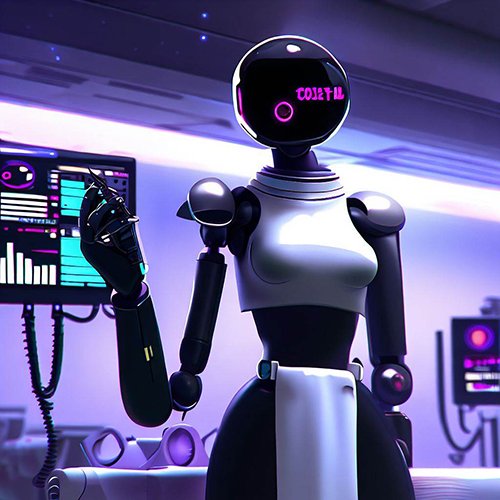How to Use ChatGPT to Diagnose Your Medical Condition
A New Era of Healthcare
The rapid advancements in artificial intelligence and technology have brought a revolution in various industries, and healthcare is no exception. ChatGPT, an advanced chatbot, is one such AI technology that is transforming the way we approach diagnosing medical conditions. By leveraging its vast knowledge, you can better understand your symptoms and make informed decisions about your health. In this comprehensive guide, we will explore how to use ChatGPT to diagnose your medical condition and discuss relevant resources to help you navigate this innovative tool.
**Disclaimer: This article is for informational purposes only and should not be considered as professional medical advice. Always consult a healthcare professional for accurate diagnosis and treatment.**
Preparing to Use ChatGPT for Medical Diagnosis
Identifying Your Symptoms
Before you can use ChatGPT to diagnose your medical condition, it is essential to have a clear understanding of the symptoms you are experiencing. Write down all your symptoms and their duration, as well as any relevant information such as recent travel, contact with sick individuals, or medication use. This will help you communicate more effectively with ChatGPT and receive accurate results.
Researching Potential Causes
While ChatGPT can provide valuable insights into your condition, it is also helpful to have some background knowledge of possible causes. Websites like WebMD and Mayo Clinic offer extensive resources on various medical conditions, symptoms, and treatments. By having a general understanding of potential causes, you can better engage with ChatGPT and ask more informed questions.
Interacting with ChatGPT for Medical Diagnosis
Starting the Conversation
To begin using ChatGPT, simply access the platform and initiate a conversation. You can ask a question or describe your symptoms in detail to receive AI-generated suggestions on potential causes. For example, you could ask, "I have a headache, fever, and a sore throat. What could be causing these symptoms?" ChatGPT will then analyze your input and provide a list of possible diagnoses.
Asking Follow-up Questions
Once you receive an initial response from ChatGPT, it is crucial to ask follow-up questions to narrow down the potential causes. You can inquire about specific symptoms, risk factors, and even the likelihood of certain diagnoses. For example:
"How common is meningitis with these symptoms?"
"What are the risk factors for mononucleosis?"
"Are there any less severe conditions that could cause these symptoms?"
Asking targeted questions will help you better understand the AI's suggestions and ultimately reach a more accurate conclusion.
Evaluating the Results from ChatGPT
Cross-referencing with Trusted Medical Resources
While ChatGPT is an incredibly powerful tool, it is essential to cross-reference its suggestions with credible medical resources. Websites such as MedlinePlus, Healthline, and the Centers for Disease Control and Prevention (CDC) can provide valuable information on various medical conditions. By comparing the AI-generated results with these trusted sources, you can ensure that you are receiving accurate and reliable information.
Understanding the Limitations of ChatGPT
Keep in mind that ChatGPT is not a substitute for professional medical advice. The AI is an incredibly helpful resource, but it may not always have the most up-to-date or complete information. Additionally, ChatGPT is not capable of conducting physical examinations or tests that may be necessary for an accurate diagnosis. It is important to use the AI-generated suggestions as a starting point rather than a definitive answer.
Taking the Next Steps After ChatGPT Diagnosis
Scheduling an Appointment with a Healthcare Professional
Once you have a better understanding of your potential medical condition, it is crucial to schedule an appointment with a healthcare professional for a proper evaluation. Be sure to share the information you gathered from ChatGPT and your research, as this can help your doctor or specialist make a more accurate diagnosis. Remember that only a qualified healthcare professional can provide a definitive diagnosis and recommend appropriate treatment.
Utilizing Telemedicine Platforms
In some cases, you might prefer to seek medical advice from the comfort of your home. Telemedicine platforms such as Teladoc, Doctor On Demand, and Amwell offer virtual consultations with licensed healthcare professionals who can evaluate your symptoms, provide a diagnosis, and prescribe treatment if necessary. These platforms can be a convenient and accessible alternative to traditional in-person appointments, especially if you have limited access to healthcare providers in your area.
Maintaining Your Health with ChatGPT
Tracking Your Symptoms and Progress
ChatGPT can also serve as an invaluable tool in managing your health over time. By regularly communicating your symptoms and progress to the AI, you can gain insights into the effectiveness of treatments, monitor your recovery, and identify potential complications early. This information can help you make informed decisions about your healthcare and improve communication with your healthcare provider.
Exploring Lifestyle and Wellness Tips
In addition to diagnosing medical conditions, ChatGPT can provide valuable advice on maintaining a healthy lifestyle and managing chronic conditions. By asking questions about nutrition, exercise, stress management, and more, you can access a wealth of AI-generated tips to support your overall well-being.
Embracing the Future of Healthcare
As technology continues to evolve, ChatGPT and other AI-driven tools are revolutionizing the way we approach healthcare and self-diagnosis. By harnessing the power of artificial intelligence, you can better understand your symptoms, receive insights into potential medical conditions, and ultimately make more informed decisions about your health. While it is crucial to remember that ChatGPT is not a replacement for professional medical advice, it serves as a valuable resource in empowering individuals to take control of their health and well-being. With the continued integration of AI and healthcare, the future of personalized and accessible care is undoubtedly bright.












